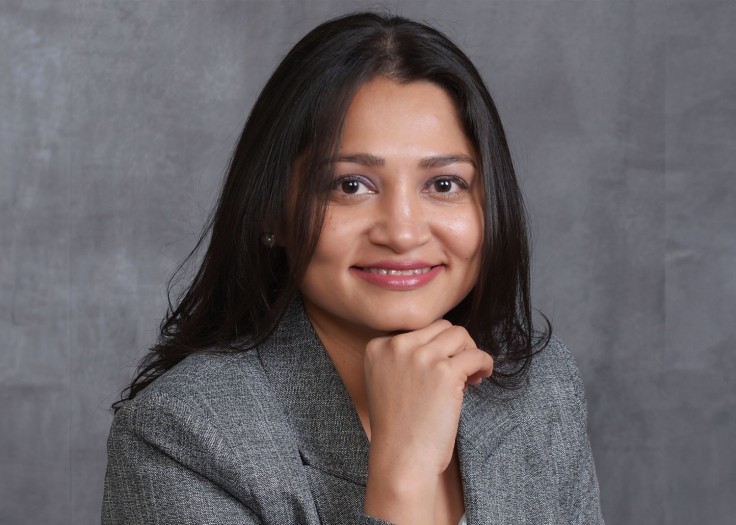
Digital technology has become integral to our lives, and dentistry is no exception. Modern innovations have enhanced the industry's efficiency, safety, and accessibility. Nirali Shah, Senior Project Manager at Nobel Biocare, a leading innovator in implant-based dentures, spoke to TechWorm about several developments that have transformed digital dentistry.
Shah has been working in the Research and Development department of Nobel Biocare for over a decade. She plays a pivotal role in the company's most innovative product development, which has contributed significantly to the digital dentistry field and generated millions of revenue for Nobel Biocare.
In this article, we will focus on revolutionary developments made by Nirali Shah that are transforming traditional dental practices. For instance, the essential components of digital dentistry are computer-aided design (CAD) and computer-aided manufacturing (CAM), which facilitate the creation of precise and personalized dentures in the shortest possible time, reducing the possibility of fabrication errors to zero. One of Shah's most notable contributions has been developing and implementing digital workflows and CAD/CAM technologies that have reduced the number of patient visits required for dental implant procedures from seven to approximately four, representing a significant step forward in patient convenience and care efficiency.
Shah's recent product innovation includes the launch of the Ti Abutment—a titanium Abutment screwed into the implant and holds the crown with an angulated screw channel globally. This solution addresses the challenge of providing restoration for dental implants placed above the soft tissue and eliminates the need for an adapter to enhance strength. This product enables the restoration of implants situated at a higher level. Shah's extensive experience in both CAD/CAM technologies and leadership has enabled her to develop a core file feature for CAD software, facilitating a digital workflow for designing the abutment and crown together on the same day with a guaranteed fit.
"This product is a one-stop shop for all the needs of better access, patient convenience, reduced time to teeth, and esthetically efficient. I am very proud and humbled to have had the opportunity to lead the team in developing this product. I also played a critical role in developing the CAD CAM workflow for this product to be used digitally, which has revolutionized the dental industry," she said.
In addition to spearheading the innovation projects, Shah has been playing a critical role as a subject matter expert in CAD/CAM technology to improve digital dentistry with efficiency and accuracy by integrating the entire portfolio of Nobel Biocare with 3Shape Dental Designer software since 2013. The integration is responsible for one-third of the revenue of the company's plant in Mahwah, NJ, through its role in developing, testing, validating, and launching the CAD/CAM solutions for Nobel's dental restoration.
In total, Shah has integrated over 15 dental restoration products, including crowns, implant bridges, overdenture bars, abutments, and implant crowns, with dental CAD software (3Shape Dental Designer). This integration provides an easy and accurate digital workflow for dental labs to design their restorations in the CAD software and leads the CAM to mill the designs with CNC machines.
"The major benefits of using the CAD CAM technology in the dental industry is that it provides an improved patient experience by lowering the number of appointments or visits and increasing the accuracy of the final restoration. The benefit also includes fewer remakes since the fit is already checked digitally and reduces overhead costs," she explained.
Besides working for doctors' and patients' needs, using digital technologies in dentistry has an impressive positive impact on business effectiveness. For instance, according to Shah, after the integration of Nobel Biocare's portfolio with 3Shape CAD software, the total revenue has increased by 25%, with one-third of orders coming from this channel.
She admitted that such a result is "the huge leap in opening the software and digital experience for all the dental labs worldwide."
Shah's contributions extend beyond mere technical advancements, embodying a holistic approach to improving patient care by integrating cutting-edge technology with practical clinical solutions. Through these initiatives, she has played a pivotal role in advancing the field of dental medicine, offering both practitioners and patients more efficient, effective, and accessible treatment options.
She played a pivotal role in developing DTX Studio Clinic and Implant software, a game-changing tool for dental implant procedures. This software addresses the challenges dentists face by providing precise planning and patient-focused care. While traditional methods lacked visualization and predictive modeling, which led to errors and limited options for complex cases, this software solution was created to enable guided surgery and make it fully digital.
DTX Studio Clinic and Implant software employs AI to analyze dental images, detecting issues like decay, restoration problems, and bone loss. It also offers features for accurate planning based on patient anatomy. This innovation stands out in the dental field for its advanced diagnostic tools, which have been designed to improve treatment outcomes.
One crucial step in developing any software used to treat or diagnose any medical condition is a validation against user requirements in accordance with The US Food and Drug Administration (FDA) regulations. This process is intended to establish evidence that the software functions as intended and to ensure that it does not detect incorrect medical conditions or provide incorrect treatment. Shah was instrumental in validating it against user requirements to comply with FDA regulations. Without her successful software validation report, it would not have been possible to launch the product worldwide. As a result, dentists across the globe can successfully implement it and provide patients with a higher level of medical service.









